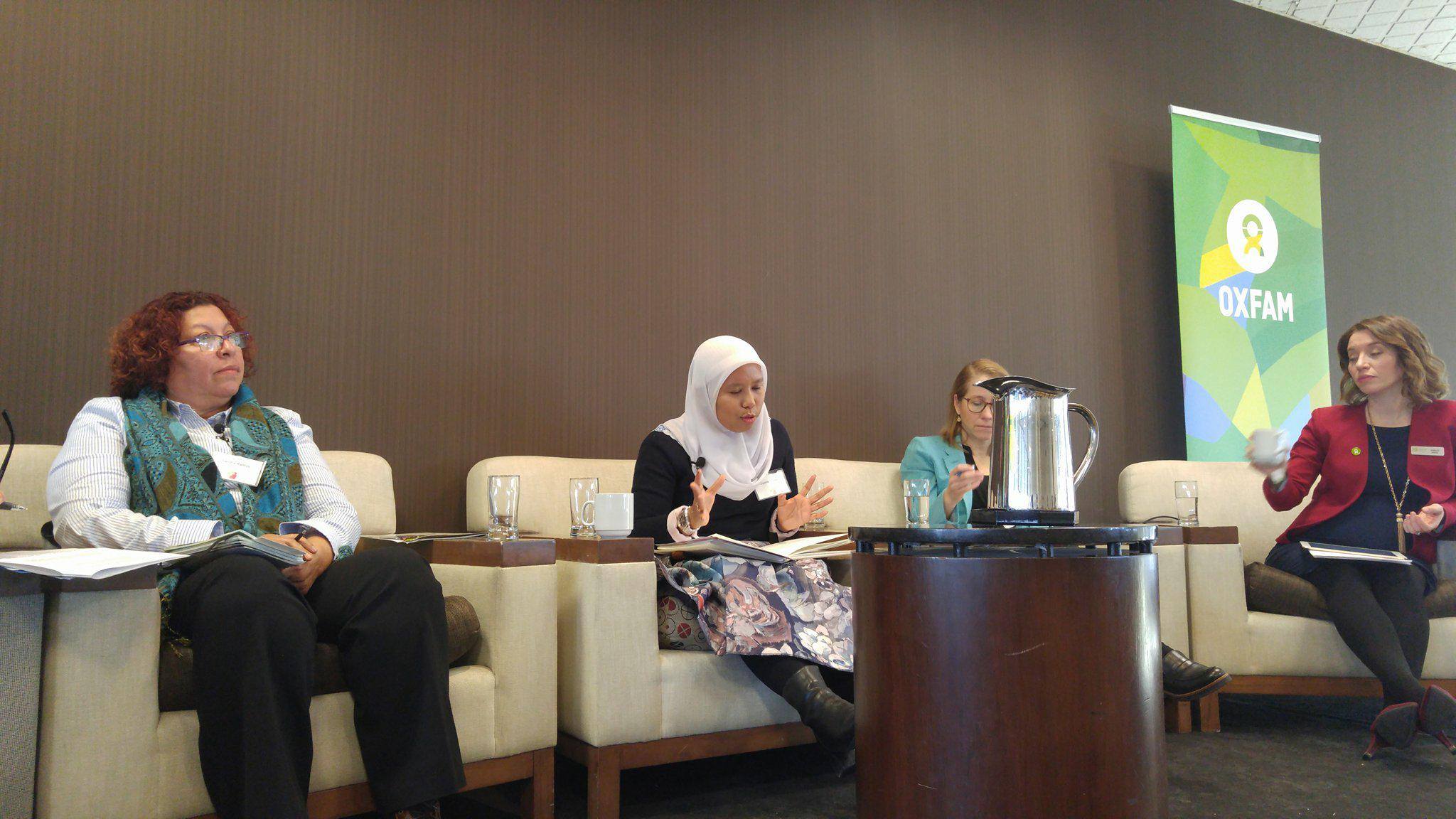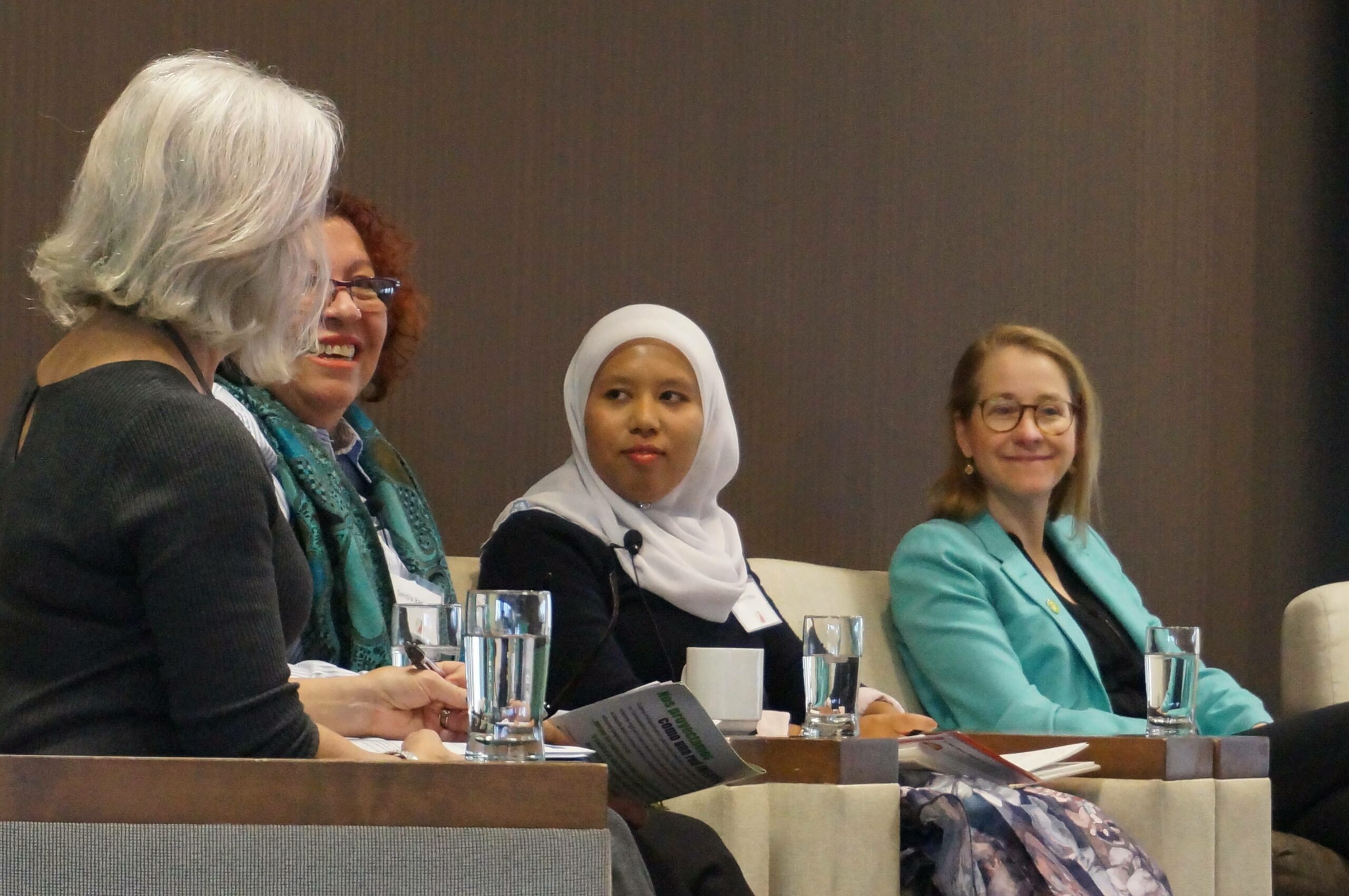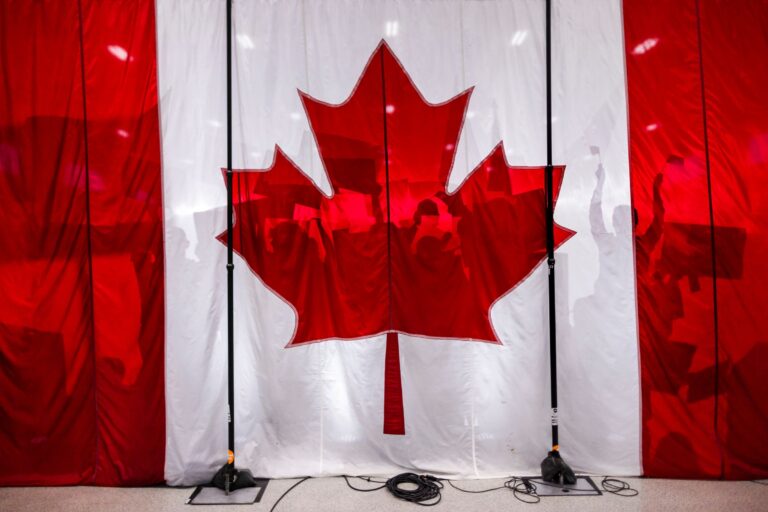The federal government unveiled its feminist international assistance policy in June, but how exactly this will take shape has yet to be articulated.
Oxfam Canada, which recently released a report on Canada’s feminist foreign policy, brought together a panel in late November to discuss how best to support gender equality internationally. The Trudeau government’s stated policy commits itself to support and encourage growth in six areas: gender equality and female empowerment, human dignity, effective feminist growth, climate action, inclusive governance, and peace and security.
“[Feminist foreign policy is] about addressing the structural barriers to women’s equality. It’s about changing power dynamics, and it’s about really focusing on political rather than just technical solutions to some of the issues,” said Julie Delahanty, the executive director of Oxfam Canada. She pointed to the Swedish Foreign Service Action Plan for Feminist Foreign Policy as an example Canada could follow. The Swedish policy can be summarized with the three Rs: rights, representation and resources.
A feminist policy approach based on rights means things like reproductive health and violence against women are addressed, Delahanty said. She praised the Canadian government for supporting advocacy work on gender equality rights as part of its international assistance policy.
Representation refers to increased political participation from women in various roles, as well as cooperation with and support for women’s rights organizations. The third R is about financial and human resources. There needs to be enough money to implement the policy, Delahanty said. She added that the Canadian approach should have two more Rs: research, to back up the policy, and reach, meaning — in part — a coherent approach across government.

Diyana Yahaya, who works for the Asia Pacific Forum on Women, Law and Development, talked about the impacts of trade agreements on women in the Asia-Pacific region. The feminization of cheap manufacturing with low-wage jobs and the privatization of public services are two examples.
“The market and the way it functions right now is sexist,” said Yahaya, who campaigned against the Trans-Pacific Partnership and the Regional Comprehensive Economic Partnership. Canada, she said, has the opportunity to “be putting forth different models of trade agreements that are based on mutual cooperation, as well as solidarity between workers within countries, and also those that will be more pro-people instead of those working in the interest of multinational corporations.”
Sandra Ramos, executive director of the Nicaragua-based Maria Elena Cuadra Movement of Working and Unemployed Women, detailed the hardships women continue to face in Central American free trade zones. Ramos co-founded the Central American Women’s Network in Solidarity with Women Workers in 1996.

“We were sold the idea that free trade would bring progress to our society,” Ramos said through a translator. “We have lost more than we have gained. The big losers in the free trade agreement were Nicaraguan and Central American women.”
Ramos highlighted the need for rights already guaranteed for women to be upheld, and for international law to be respected.
Gender chapters in trade deals — such as the one Canada has been pushing for at the NAFTA renegotiation table — could be strengthened by having concrete requirements for the involved parties, but also through analyses of social impacts, poverty and gender before the agreements are negotiated, Delahanty said.
She also stressed the importance of civil society participating in the discussion of trade deals. “Right now they’re very closed and there’s very little information.” The Canadian Press found out about the proposed gender chapter only through an access-to-information request. It is not yet known whether the gender chapter will make it into the final draft of the agreement.
Yahaya also emphasized the need for transparency in effectively applying a feminist foreign policy, and she said it was necessary “that women have genuine power and decision-making.”
Ramos too spoke about transparency. “What we are demanding of the Canadian government is transparency during the discussion of free trade agreements in every region and more monitoring of Canadian [companies].”
To develop a feminist approach to corporate accountability, Delahanty suggested three things. “The first would be establishing a human rights ombudsperson for Canadian companies operating abroad, and that would basically be a mechanism that would allow people to make complaints against Canadian companies,” she said. The government should also work alongside women’s rights defenders and advocates. Finally, Canada needs a feminist national plan on business and human rights that would build on the UN Guiding Principles on Business and Human Rights.
She concluded, “I think a feminist approach to corporate accountability really means recognizing the impact that Canadian companies operating abroad have on women.”
Photo by Emily Fearon.
Do you have something to say about the article you just read? Be part of the Policy Options discussion, and send in your own submission. Here is a link on how to do it. | Souhaitez-vous réagir à cet article ? Joignez-vous aux débats d’Options politiques et soumettez-nous votre texte en suivant ces directives.











